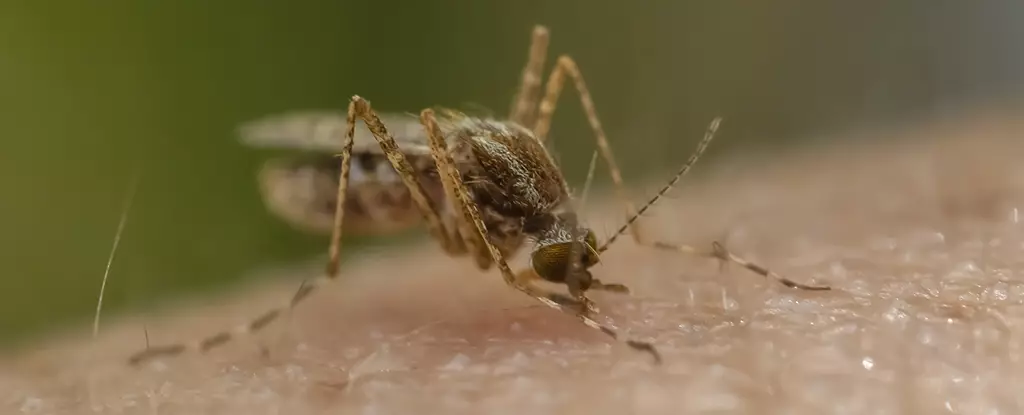Malaria continues to be a formidable global health challenge, affecting nearly 250 million people worldwide each year, leading to hundreds of thousands of fatalities. Traditional perceptions of mosquitoes typically center around their role as vectors for this life-threatening disease, but a groundbreaking study has flipped this narrative by harnessing the characteristics of these insects to develop a potential vaccine. The research, conducted by teams from Leiden University and Radboud University in the Netherlands, presents a compelling case for the feasibility of genetically modified mosquitoes as vehicles for vaccine delivery.
The new vaccine, often referred to as GA2, has shown a remarkable improvement when compared with its predecessor, GA1. In clinical trials, eight out of nine participants receiving the GA2 vaccine experienced complete protection against malaria, a stark contrast to the paltry one in eight for the prior version. The underlying principle of this innovative vaccine involves utilizing a genetically weakened form of Plasmodium falciparum, the parasite responsible for malaria. Unlike its fully virulent counterpart, this modified parasite does not induce the disease but instead primes the immune system to fend off future infections, a significant breakthrough in vaccination strategies.
Vaccinologist Meta Roestenberg explains that the GA2 version of the parasite is injected via mosquito bites, mimicking the natural process of parasite transmission. However, crucially, the genetic modifications render the parasite incapable of completing its development within the human liver. This insufficiency prevents the onset of any malaria symptoms and effectively allows the immune system to mount a response without the individual experiencing illness. Furthermore, the alteration in the parasite’s development timeline, from 24 hours for the GA1 to nearly a week for the GA2, grants the immune system additional time to detect and react to the foreign invader.
The significance of GA2’s ability to trigger a robust and diverse immune response cannot be understated. Clinical trials revealed that this new version elicited a stronger activation of various immune cells, which may account for its heightened efficacy. The prolonged duration before the parasite matures in the liver provides an essential opportunity for the immune system to assemble a formidable defense, improving the likelihood of long-term immunity. Additionally, this research opens avenues for further investigation, aiming to understand the precise mechanisms driving such an effective immune response.
Despite the promising results, the implementation of such a delivery system raises ethical and logistical questions. Although the immediate side effects reported were minimal, primarily limited to redness and itching around the injection sites, the practicality of deploying genetically modified mosquitoes in real-world settings remains uncharted territory. While this method shows great potential in vaccine trials, translating it into a public health solution must navigate scientific, regulatory, and public acceptance challenges.
This development comes at a critical moment as global health efforts intensify to combat malaria, striving not only for immediate solutions but for long-term protection against future outbreaks. Current malaria vaccines typically provide only partial immunity, covering around 50-77 percent of recipients for limited durations. The GA2 vaccine, contingent on further validation, could revolutionize these numbers, developing a more comprehensive and sustained defense against malaria.
As researchers continue their work, this study embodies both the challenges and the exciting prospects inherent in medical innovation. The possibility of mosquitoes being repurposed as effective vaccine delivery systems is a testament to human ingenuity. However, such advancements warrant thorough exploration to ensure that they do not inadvertently add complexity to the challenges of eradicating malaria.
The GA2 vaccine marks a significant step forward in malaria prevention strategies, demonstrating that the very creatures that perpetuate the disease could play a pivotal role in combating it. With further research and careful planning, the dream of an effective malaria vaccine — delivered in a manner resembling the natural infection process — may not be far from reality.

